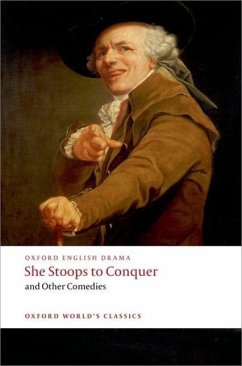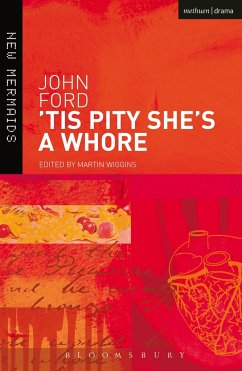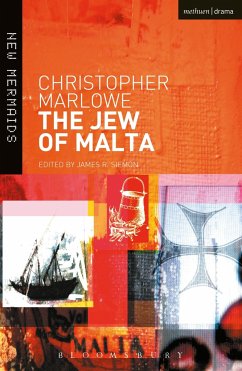
Oliver Goldsmith
Broschiertes Buch
She Stoops to Conquer
Versandkostenfrei!
Versandfertig in über 4 Wochen

PAYBACK Punkte
7 °P sammeln!




This drama text is one of a series of important English plays. It includes a critical introduction, biography of the author, discussions of date and sources, textual details, a bibliography and information about the staging of She Stoops to Conquer"."
Oliver Goldsmith (1730-74) was an Irish poet, playwright, novelist, and journalist, whose two plays have outlived the efforts of all his contemporaries except Sheridan. Dr Johnson described him as "a very great man", while Goethe would later write, "To Shakespeare, Sterne, and Goldsmith my debt has been limitless." Goldsmith's youth gave little promise of his future achievements. After attending Trinity College, Dublin, he abandoned plans to be ordained. He thought of emigrating to America but missed his ship. He then briefly studied medicine before travelling through Europe, partially supporting himself by busking. On his return, he earned a meagre living by translating and reviewing; it was in this period that he emerged as an essayist of talent. Goldsmith's first play, The Good-Natured Man, was turned down by Garrick; the elder Colman subsequently produced it at Covent Garden (1768) though with only mild success. Goldsmith made his name as a playwright with the comedy She Stoops to Conquer (1773), in which two men mistake a private house for an inn (a mistake the playwright had himself once made). Goldsmith's only novel The Vicar of Wakefield (1766) was successfully adapted for the stage in 1878 with Ellen Terry in the role of Olivia, a part later played on tour by her sister, Florence Terry. Goldsmith's Irish impudence and inconsequential style of chat often irritated his London contemporaries. Horace Walpole called him "an inspired idiot" while Samuel Johnson commented "No man was more foolish when he had not a pen in his hand, or more wise when he had."
Produktdetails
- New Mermaids
- Verlag: Bloomsbury Publishing PLC
- 2 ed
- Seitenzahl: 144
- Erscheinungstermin: 3. November 2010
- Englisch
- Abmessung: 198mm x 129mm x 13mm
- Gewicht: 146g
- ISBN-13: 9780713667943
- ISBN-10: 071366794X
- Artikelnr.: 21905437
Herstellerkennzeichnung
Libri GmbH
Europaallee 1
36244 Bad Hersfeld
gpsr@libri.de
Für dieses Produkt wurde noch keine Bewertung abgegeben. Wir würden uns sehr freuen, wenn du die erste Bewertung schreibst!
Eine Bewertung schreiben
Eine Bewertung schreiben
Andere Kunden interessierten sich für











